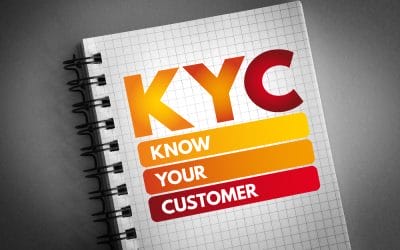“Due to the precision of software and mathematics, cryptocurrencies are some of the most fungible assets in the world.” – World Crypto Index
A dollar is a dollar is a dollar
In today’s world of digital currencies, attention has been heavily placed on security tokens because they are subject to regulation and typically tied to assets with real-life value (real estate, companies etc.). These tokens appeal to investors because real-life assets provide a means to measure the actual value of the tokens, making their value more tangible and potentially more akin to fiat currencies. Ironically, fiat money was once itself backed by gold – the gold standard meant that banks accepted these notes for gold; however, in 1971 this was terminated and money was no longer backed by anything of real value. When you consider this reality – there may actually be some merit in applying value to tokens over fiat currencies.
Security Token Offerings
Interest in security tokens has grown significantly, and governments such as the Gibraltar government, are seeking an extension to its license so that it may provide a security token exchange on its servers – which would be centralized. While this initially sounds like progress – this walled garden approach is founded on flawed thinking. The appeal of the crypto market for many is that it is decentralized and is based on peer-to-peer (P2P) networks without intermediaries. Reliance on the Gibralter government or any other government undermines this philosophy.
P2P networks maintain the fungibility of cryptocurrencies because and there is no threat to the value of these assets being reduced arbitrarily in an open, decentralized market. Conversely, centralized exchanges have been known to selectively reduce the value of particular tokens at their discretion, for example – when a token is of unknown origin the exchange may elect to reduce its value. In the world of fiat currencies, a dollar is a dollar is a dollar…and, currency values should not be reduced – but rather, compliance procedures should be actively implemented.
Centralization Doesn’t Equal Security
Centralization typically means points of weakness regarding security, stability, and a fair market. Most banks operate using a centralized database. It only takes one qualified hacker to code their way through the system and access the information needed to rob people of their life-savings. We also don’t know how “fit” the individual verifying values and transactions really is. The combination of cryptography and “sharing the burden” with a P2P network allows decentralized mediums like blockchain to enforce a secure value transfer.
Programmatic Compliance
There are many ways to enable compliant secondary trading without centralization. A viable alternative to the walled garden approach is embedding compliance into a token during token issuance. By using an accredited issuance platform, regulatory requirements are applied at the token level and this approach does not limit trading to one or few centralized exchanges but instead propagates trading across many decentralized exchanges.
Decentralization Protects More Than Just the Value of Your Tokens
In the early days of the world-wide-web desktop computers communicated directly to servers and other desktop computers. However, with the proliferation of digital giants like Facebook, personal information has become increasingly stored in centralized data banks by third-parties which have resulted in major data breaches such as the Cambridge Analytica scandal, in which Facebook profiles were harvested for the purpose of steering the 2016 political election. Decentralization means that these breaches can be more easily avoided.
Increased security and the ability to trade in larger and more liquid environments all make decentralization increasingly appealing. By removing third-parties the blockchain becomes a trusted ledger where all assets are equal – and wasn’t this the point?
Challenges of Decentralization
From a legal and financial perspective, aspects of decentralization do not come without challenges. For instance, global peer to peer indexing allows anyone to post a buy or sell order, against market rates, using a smart contract to fulfill the order, rather than an exchange. Compliance practices such as KYC and AML, as well as due diligence checks, are necessary to ensure the integrity of the blockchain ledger as a trusted record of trades – especially when the token is determined to be a security.
If compliance is embedded at the token level and value is assigned correctly to each token then trade in-between tokens and value systems offer fungibility in its optimal form. Security tokens and decentralization bring improvements to traditional financial products by removing the middleman from investment transactions. This removal has a ripple effect leading to lower fees, faster deal execution, free market exposure, a larger potential investor base, automated service functions and so on.
A New Source of Truth
The world is changing, decentralization and tokenization are no longer foreign concepts. The traditional and decentralized economies are becoming more integrated, and the preservation of asset-fungibility on peer-to-peer networks is successfully occurring without intermediaries.
Once an asset is tokenized using blockchain it can trade much more efficiently, but this does not eliminate the need for compliance. This means a shift in the status quo and regulations for both traditional and decentralized finance.
About Prefacto
Prefacto is a token compliance tool offering free audited smart contracts, global best-in-class KYC/AML for over 160 countries, source of funds reports to help issuers open bank accounts after completing a crowdsale, and programmatic secondary trade management. Register now: https://platform.prefacto.net/Account/Register
About iComply Investor Services Inc.
iComply Investor Services Inc. (iComply) is an award-winning software company focused on reducing regulatory friction in the capital markets. With powerful data, verification, tokenization solutions, iComply helps companies overcome the cost and complexity of multi-jurisdictional compliance to effectively access new markets. Learn more: iComplyIS.com
2025 Outlook: Data Privacy and Security in KYB, KYC, AML Compliance
In today’s rapidly changing digital landscape, data privacy and security are more crucial than ever for compliance teams. As regulations tighten and cyber threats evolve, businesses must prioritize innovative solutions. Enter edge computing, a game-changer for KYC,...
A Quick-Start Guide to AML Compliance
Building a Robust AML Program: A Compliance Officer’s Guide
Learn how to streamline AML compliance with digital onboarding, automated SAR submissions, secure record keeping, and a risk-based approach.
The Future of KYB: Streamlined Verification for Seamless Business Transactions
KYB Made Easy: Streamlining Business Verification
Discover how modern KYB technology is simplifying business verification, making it faster, more secure, and user-friendly. Learn how automated checks, biometric verification, and real-time compliance can benefit your business.
The Future of KYC: A Digital Journey Through Verification
The Future of KYC: A Seamless Digital Experience
Explore how modern KYC technology is transforming identity verification, making it faster, more secure, and user-friendly. Discover the benefits of biometric authentication, blockchain security, and self-sovereign identity.





